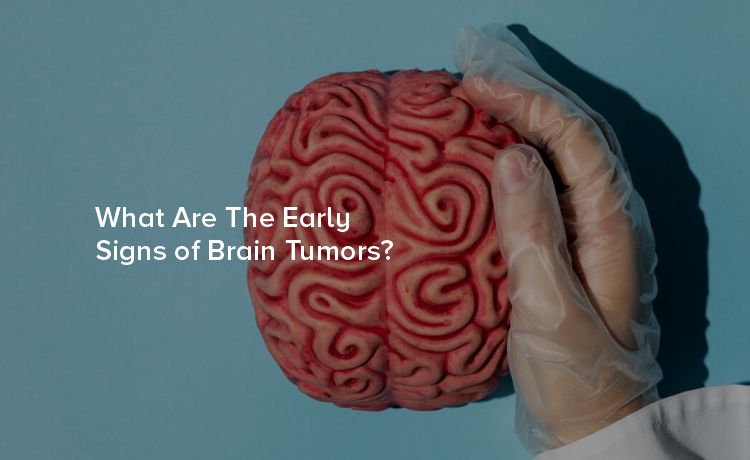
Brain Tumor can be a daunting diagnosis to confront, but understanding its early signs is essential for timely intervention and better outcomes. Early detection can significantly improve the prognosis and provide more treatment options.
Brain Tumors refers to the growth of neoplastic cells within the brain, which can disrupt its normal functions. There are two main types of brain tumors : one is non cancerous, other - cancer, that requires chemoradiotherapy after removal primary brain tumors, which originate in the brain, and secondary (or metastatic) brain tumors, which spread to the brain from other parts of the body. which is removable or decompression of the tumor by any surgery biopsy of the tumor confirms the type, early detection is critical for effective treatment.
While symptoms can vary depending on the tumor's location, size, and growth rate, there are several common indicators that may suggest the presence of brain Tumor. It's important to remember that these symptoms can also be associated with other, less serious conditions. However, if you or someone you know experiences any of these signs persistently, it's crucial to seek medical evaluation.
1. Persistent Headaches
Headaches are one of the most common symptoms associated with brain tumors. Unlike typical headaches, those caused by brain tumors may be more severe, persistent, and worsen over time. They are often described as a dull, constant ache that can intensify with activities like coughing, sneezing, or bending over. If you experience persistent headaches that do not respond to standard treatments, it’s essential to consult a healthcare professional.
2. Seizures
Seizures are sudden, uncontrolled electrical disturbances in the brain, and they are a common early sign of brain tumors. These can manifest as convulsions, involuntary movements, or changes in behavior and consciousness. Even if you've never had a seizure before, experiencing one should prompt immediate medical attention.
3. Cognitive Changes
Brain tumors can affect cognitive abilities, leading to noticeable changes in memory, attention, and reasoning. You may find it difficult to concentrate, solve problems, or recall recent events. These cognitive impairments can develop gradually and may be subtle at first but become more pronounced over time.
4. Personality and Mood Changes
Changes in personality and mood can be an early sign of brain Tumor. Tumors affecting the frontal lobe, for example, can lead to alterations in behavior, increased irritability, or depression. Loved ones may notice that you seem different or are acting out of character.
5. Nausea and Vomiting
Persistent nausea and vomiting, especially in the morning, can be an early indication of increased intracranial pressure due to a brain tumors. Unlike typical gastrointestinal issues, this symptom may not be related to food intake and can occur without other digestive symptoms.
6. Vision Problems
Vision changes, such as blurred vision, double vision, or loss of peripheral vision, can be an early sign of a brain tumors. These symptoms occur when the tumors affects the optic nerves or other parts of the brain responsible for vision. If you experience sudden or unexplained vision problems, it's important to seek an eye examination.
7. Speech Difficulties
Difficulty speaking, understanding language, or finding the right words can be an early symptom of brain tumors. Tumors affecting the brain's language centers can lead to speech and communication challenges. If you notice any changes in your ability to articulate thoughts or comprehend spoken language, consult a healthcare provider.
8. Balance and Coordination Issues
Brain tumors can disrupt the parts of the brain responsible for balance and coordination. You may experience clumsiness, difficulty walking, or frequent falls. These symptoms can often be overlooked or attributed to other causes, but persistent issues should not be ignored.
If you or someone you know experiences any of the above symptoms persistently or if they worsen over time, it's crucial to seek medical evaluation. While these signs can be caused by various other conditions, only a healthcare professional can provide an accurate diagnosis through proper testing and imaging.
Importance of Scan:
Many tumors can be detected in early phase by scans like CT or MRI brain scan. Early detection is important for complete care
Early diagnosis of brain tumors typically involves a combination of neurological exams, imaging tests (such as MRI or CT scans), and biopsy procedures. Once diagnosed, treatment options may include surgery, radiation therapy, chemotherapy, targeted therapy, or a combination of these approaches. The treatment plan will depend on factors such as the tumor type, location, and patient's overall health.
Awareness of the early signs of brain tumors can play a pivotal role in ensuring prompt medical attention and improving outcomes. Although these symptoms can be caused by various other conditions, it's always best to err on the side of caution and consult a healthcare professional if you notice any concerning changes. Early detection and intervention are key to managing brain tumors effectively and enhancing the quality of life for those affected.